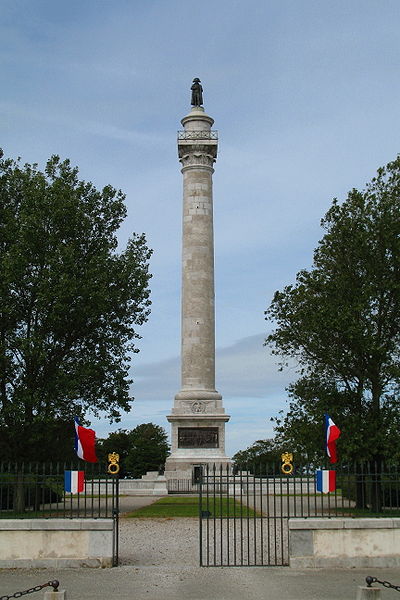Pierre Claude François Daunou
Pierre Claude François Daunou was a French statesman of the French Revolution and Empire. An author and historian, he served as the nation's archivist under both the Empire and the Restoration, contributed a volume to the Histoire littéraire de la France, and published more than twenty volumes of lectures he delivered when he held the chair of history and ethics at the Collège de France.
Pierre Claude François Daunou
Bust of Pierre Daunou by David d'Angers (1840).
Tomb of Pierre Daunou
Boulogne-sur-Mer, often called just Boulogne, is a coastal city in Northern France. It is a sub-prefecture of the department of Pas-de-Calais. Boulogne lies on the Côte d'Opale, a touristic stretch of French coast on the English Channel between Calais and Normandy, and the most visited location in the region after the Lille conurbation. Boulogne is its department's second-largest city after Calais, and the 183rd-largest in France. It is also the country's largest fishing port, specialising in herring.
A general view from the Brecquerecque Quarter: The modern lighthouse, the medieval bell tower and the English Channel
The Tour d'Ordre, a Roman lighthouse, in 1550. It fell into the sea in 1644, having stood for over 1600 years.
The Column of the Grande Armée commemorates Napoleon's gathering of 200,000 soldiers near Boulogne for a proposed invasion of the United Kingdom. His statue is at the top.
A "special pass" issued for travel within Boulogne by the British Red Cross in May 1917, during World War I







